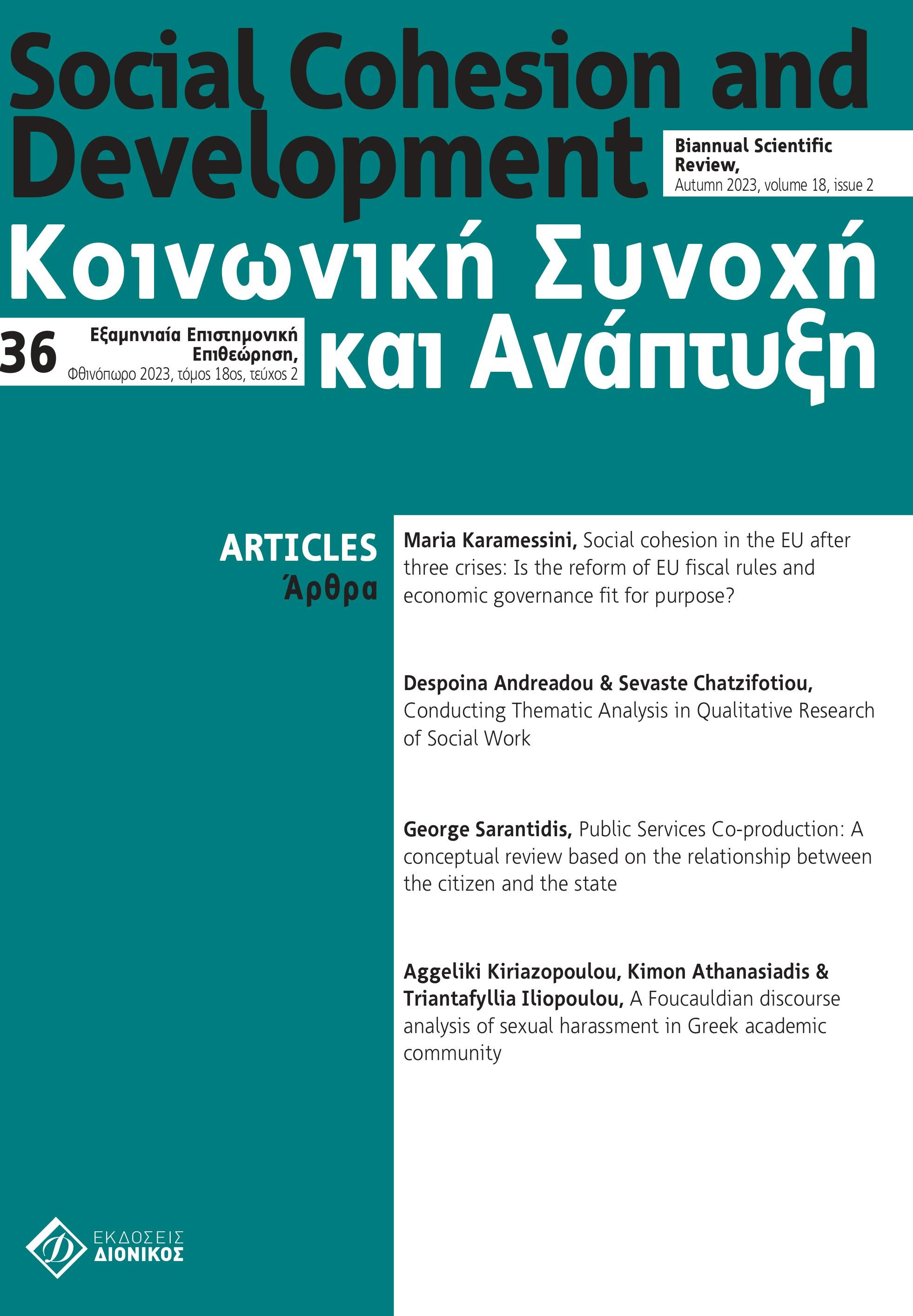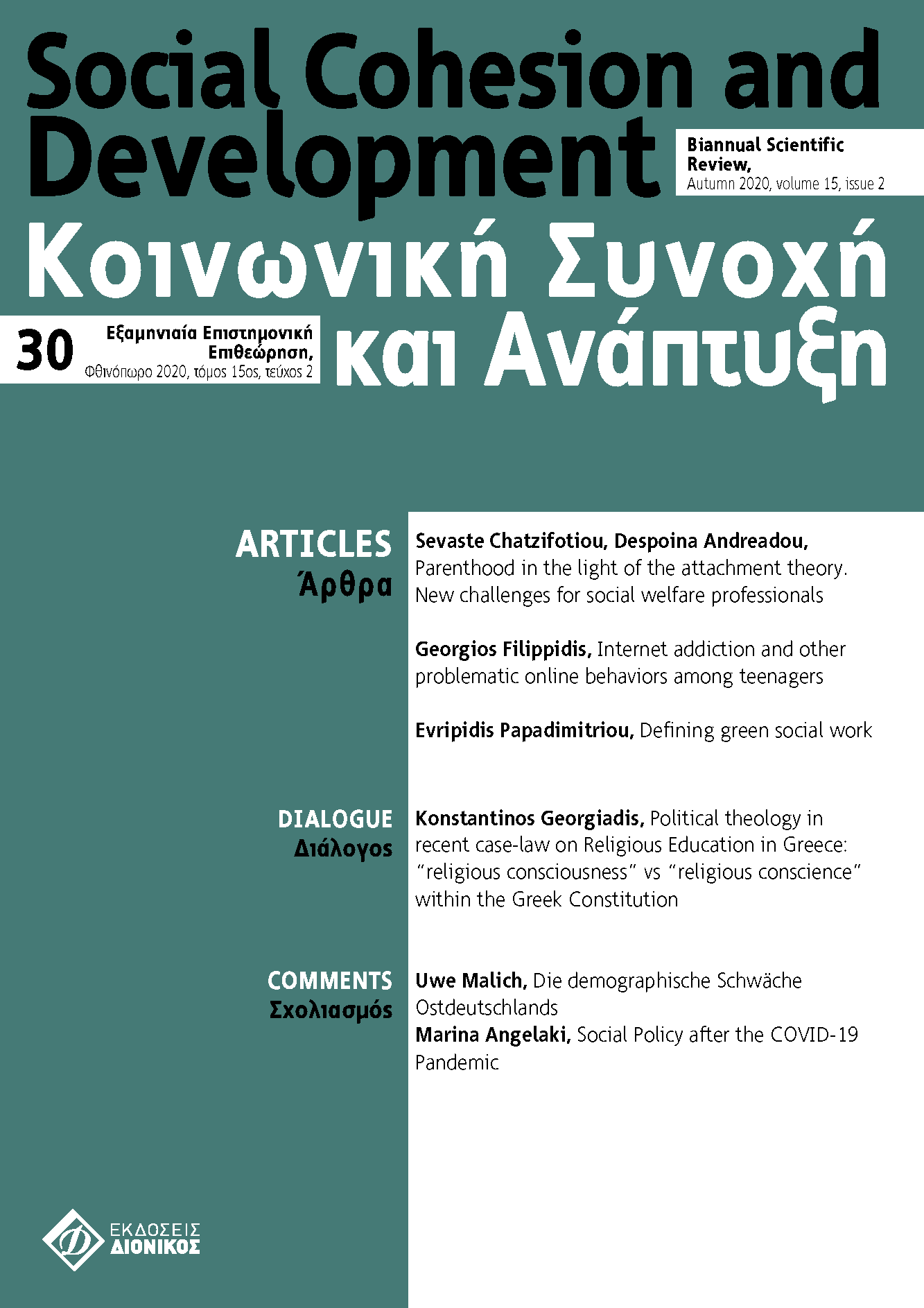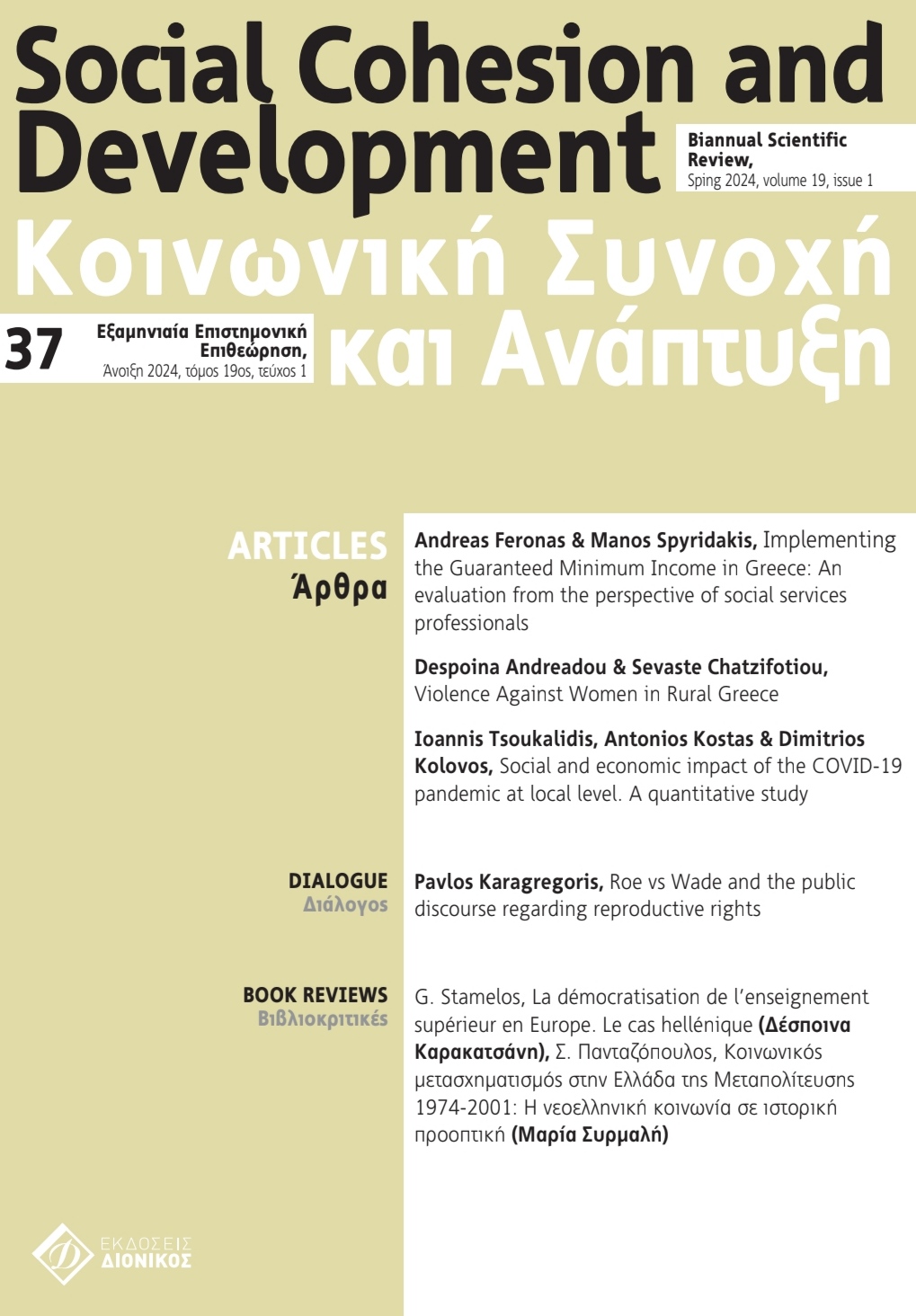Conducting Thematic Analysis in Qualitative Research οf Social Work
Abstract
Thematic analysis is one of the most commonly
used qualitative data analysis method in social
science research offering an accessible and
theoretically flexible approach for analyzing
qualitative data. This is a discussion paper
comprising an analytical overview of thematic
analysis, its conceptualization, characteristics
and applications. Furthermore, a social work
worked example using thematic analysis with
data from one of our own research projects
– domestic violence and parenthood - is
analytically discussed providing a step-by-step
guide for the analysis process. We conclude by
bringing more light to the importance of the
method and advocating it as most useful and
flexible for qualitative social work research.
Article Details
- Zitationsvorschlag
-
Andreadou, D., & Chatzifotiou , S. (2023). Conducting Thematic Analysis in Qualitative Research οf Social Work . Social Cohesion and Development, 18(2), 119–131. https://doi.org/10.12681/scad.37477
- Ausgabe
- Bd. 18 Nr. 2 (2023): No 36
- Rubrik
- Articles

Dieses Werk steht unter der Lizenz Creative Commons Namensnennung - Nicht-kommerziell - Weitergabe unter gleichen Bedingungen 4.0 International.
Authors who publish with this journal agree to the following terms:
- Authors retain copyright and grant the journal right of first publication with the work simultaneously licensed under a Creative Commons Attribution Non-Commercial License that allows others to share the work with an acknowledgement of the work's authorship and initial publication in this journal.
- Authors are able to enter into separate, additional contractual arrangements for the non-exclusive distribution of the journal's published version of the work (e.g. post it to an institutional repository or publish it in a book), with an acknowledgement of its initial publication in this journal.
- Authors are permitted and encouraged to post their work online (preferably in institutional repositories or on their website) prior to and during the submission process, as it can lead to productive exchanges, as well as earlier and greater citation of published work (See The Effect of Open Access).





